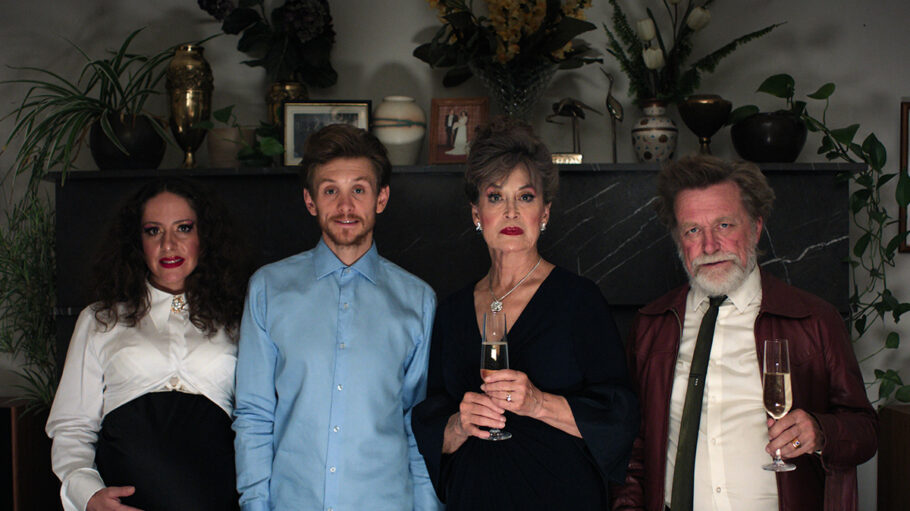A fight for home ownership sits at the heart of one of Australia’s most-beloved comedies. When “The Castle” reached cinemas in 1997, it wasn’t dreaming about its celebration of a house being a home, or about boasting an abode to call your own being the Aussie ideal. Zoe Pepper didn’t think about the Rob Sitch-directed hit at all while penning or shooting “Birthright,” but the writer/director has still given housing battles a thoroughly 2020s spin in her debut feature. Cory, her protagonist, even digs a hole.
“I didn’t actually contemplate ‘The Castle,’ I’ve got to admit,” Pepper tells Variety AU/NZ. “I haven’t thought about ‘The Castle’ for a very long time. But I should go back and rewatch,” she continues. “Tonally, we’re on different planets, in a way,” Pepper also notes — as everyone that has seen “Birthright” so far, be it at its 2025 Tribeca world-premiere, Sydney Film Festival Australian-premiere sessions or current Melbourne International Film Festival Festival run, firmly knows. (A CinefestOZ stint, including competing for the Western Australian festival’s prestigious $100,000 Film Prize, is locked in next.)
A black-comedy satire about the current housing situation in Australia, as well as the chasm between baby boomers and younger generations regarding the great Aussie dream of home ownership, “Birthright” begins with Cory (Travis Jeffrey) and his pregnant wife Jasmine (Maria Angelico) moving out of their rental property. Their plan: decamping to the sprawling outskirts abode owned by Cory’s parents Richard (Michael Hurst) and Lyn (Linda Cropper), just until they can pick up the keys to the only new tenancy they’ve been able to secure — and purely via a family friend at that — in a few weeks. The younger couple haven’t floated this idea past their hosts, however, and to say that Richard and Lyn aren’t thrilled is an understatement.
The elder pair’s reluctance comes with judgement: why haven’t Cory and Jasmine made the right choices to avoid being in this situation? Those cognisant of the reality of the country’s current housing crisis will be well-aware of how clearly the millennials’ plight reflects actuality. “Birthright” also digs into the crumbling of the baby-boomer generation’s beliefs for a middle-class life — which they’ve passed down to millennials and younger — that simply working hard sets you on a solid path.
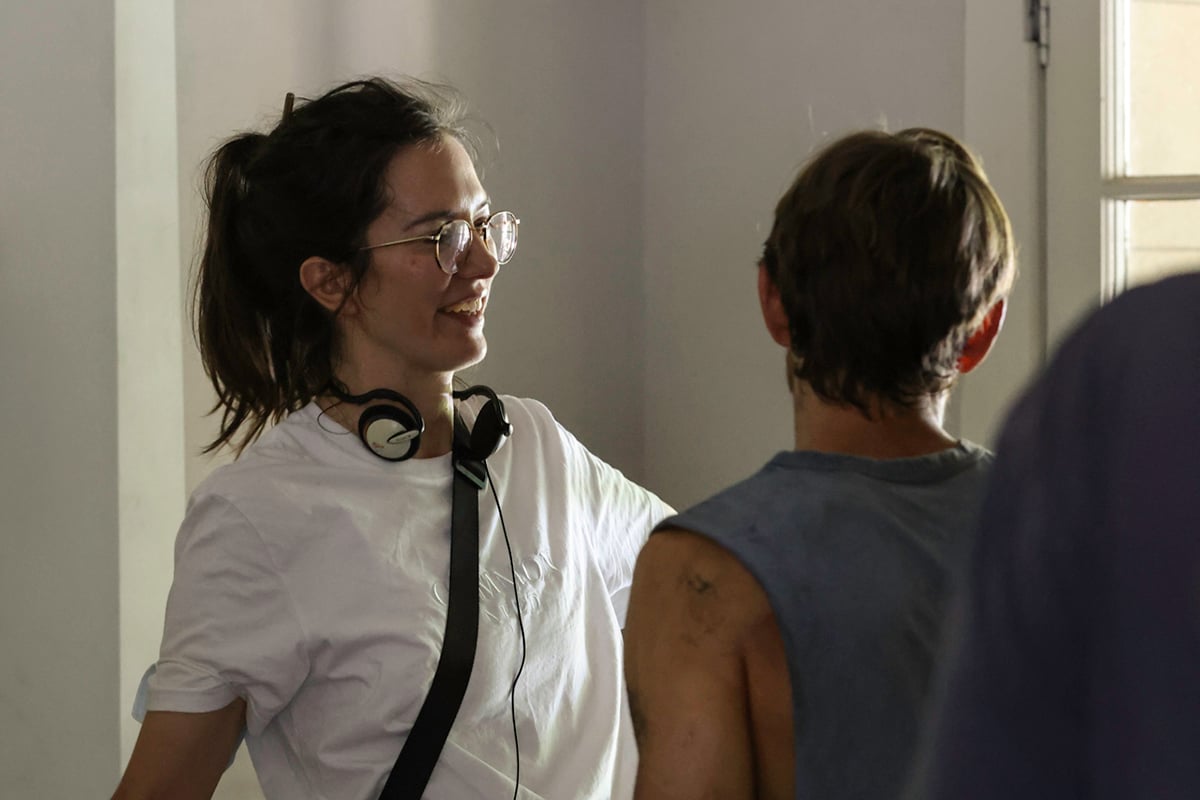
For Pepper, whose first feature follows extensive theatre experience (including directing and co-writing the Helpmann Best Play Award-nominated “The Irresistible”) as well as writing on “Population 11” and co-penning and directing web series “The Big Spaghetti,” “Birthright” started with “seeing family friends where this dynamic was playing out, where the kids were moving back in and the stay was extending and extending, and knowing that it wasn’t an ideal situation for anyone.”
“And then thinking about this microcosm of this power play happening underneath one roof as a great little microcosm for what was happening in the broader society around just the complete housing crisis for so many people of my generation,” she advises, and “imagining the tininess of this plot being a great metaphor that could be amplified to talk about bigger issues.”
“Birthright” couldn’t feel more topical, then. “Australians are obsessed with housing, and it is a massive preoccupation,” Pepper says. “And I did have a fear when I was writing it, because I was really writing towards the end of 2021, when Australia had this massive housing boom — I was like ‘oh god, is it going to burst and then it’s not going to be relevant anymore?’. And unfortunately it went the other way, where it just doubled down, and the problem just got worse and worse as the years went on.”
Love Film & TV?
Get your daily dose of everything happening in music, film and TV in Australia and abroad.
“So sadly, I think it does have massive relevance re housing — but also, it is that thing of this worldview that we’ve internalised as you grow up, and ‘this is what normal life should look like’ in terms of home ownership and having a good job and these middle-class aspirations. But the level of wealth and success that you need to reach that middle-class benchmark has just become so much greater. And so the possibility of living that life is out of reach for so many now. That chasm of inequality is very tangible and the fault lines are very generational.”
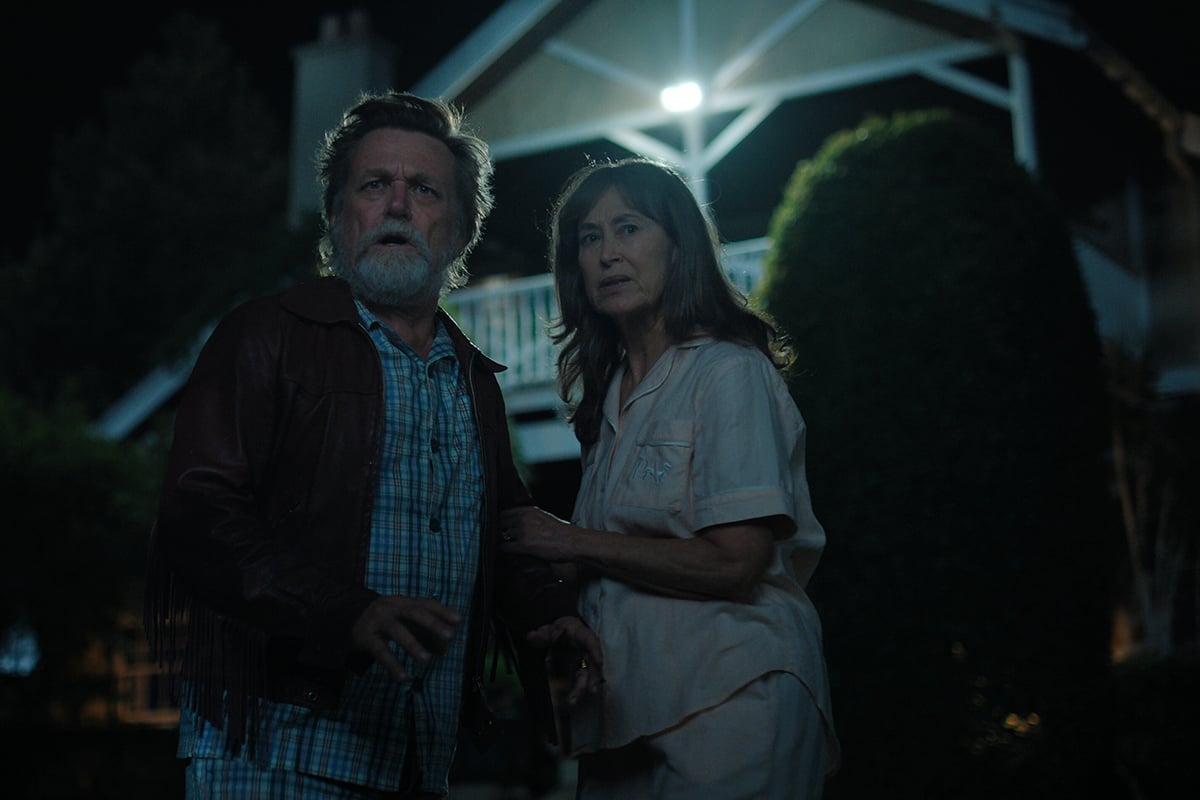
Digging a hole comes courtesy of Cory’s efforts, as tensions keep escalating with his parents over his journey in life and their dismay that he hasn’t been able to emulate theirs, to unearth the family pool that Richard and Lyn have buried and covered with glass. Symbolism abounds, clearly and cleverly; “it became the real metaphor for home ownership, as well as for how Cory feels in his life — that he just doesn’t stand a chance, that he can dig and dig and he’s just not going to get anywhere, and he is essentially just digging a hole in life,” advises Pepper.
“And I think Cory’s greatest flaw, in a way, is that he’s not exceptional. And in generations gone by, it was okay to not be exceptional. You could still live a good life and have these middle-class trappings. But for Cory and for this generation that he’s representing, being unexceptional doesn’t cut it, which he’s coming really face to face with over the course of the film.”
Having parents with a suburban house with a pool is a type of privilege, of course. Thanks to Jasmine, who didn’t have that upbringing, Pepper also interrogates class in “Birthright.” “Jasmine was really important for that very reason of being the fish out of water, being able to show up the class of Cory and his family, and satirise the middle class-ness — to understand that I understand that this is a level of privilege that I’m presenting on-screen,” explains Pepper.
“But part of the choice of making them so middle class was that this inequality is a problem that is affecting even those private-school boys that never even contemplated the fact that they would find themselves in this situation — that because they are from a level of privilege, that you would think it would be a given that they could build the lives that they wanted to make.”
“And then Jasmine, for me, is very true to my own experience of having a working-class background and then running in these middle-class circles, and always being aware of that wealth disparity. And people not really understanding just how surrounded they are by wealth at all times, but they’re completely oblivious to it. But if you’re from a different class background, it’s kind of that wealth is just everywhere.”
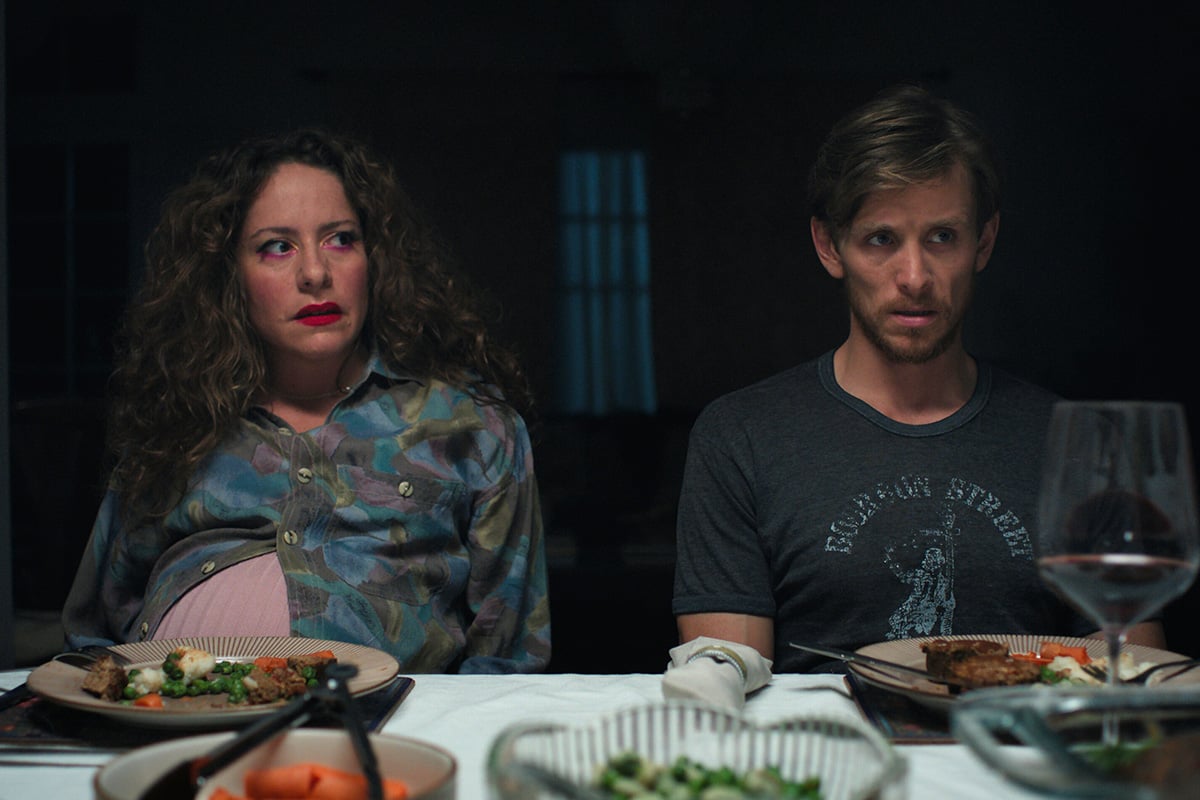
From the central concepts of housing inequality, plus generational and class clashes, “Birthright’s” narrative took shape by Pepper “working in a way that I usually work in a theatre, which is writing through improvisation and looking to more absurd, metaphorical story devices to latch onto,” she notes. “And so I didn’t plot it. It was more just writing for myself and for the kind of work that I enjoy. So, not so much going through the cognitive part of your brain that pre-plans everything, but more just writing for fun,” Pepper says. Accordingly, specific details that become stress points between Cory and Jasmine versus Richard and Lyn — the pool, and also a vintage leather jacket — were “more born of play and playfulness rather than hardcore plotting.”
Pepper’s theatre background “meant that I didn’t try to be a filmmaker — in so much as knowing that I was making a film all set in one location meant that I could dream and be creative in a way that I was familiar with in theatre, rather than trying to think ‘how would a filmmaker make this film?’ and just stay true to the way that I’m used to working creatively to tell stories. And thinking about the process in that way, rather than thinking about it as a whole new medium that was new to me and I was going to have to learn all these new skills.”
”And I absolutely had to do that,” she continues, “but there was just a different part of my creative brain that that I could keep from theatre, that I could use in this, because of the way that it was all in one location. And then I think the way that I work with actors is very much from my theatre background. I push actors a lot and demand a lot of them. And I think because I studied acting myself, I know that you can keep pushing and pushing and get to a great place. Maybe that’s a big part of what I bring to the process from theatre.”
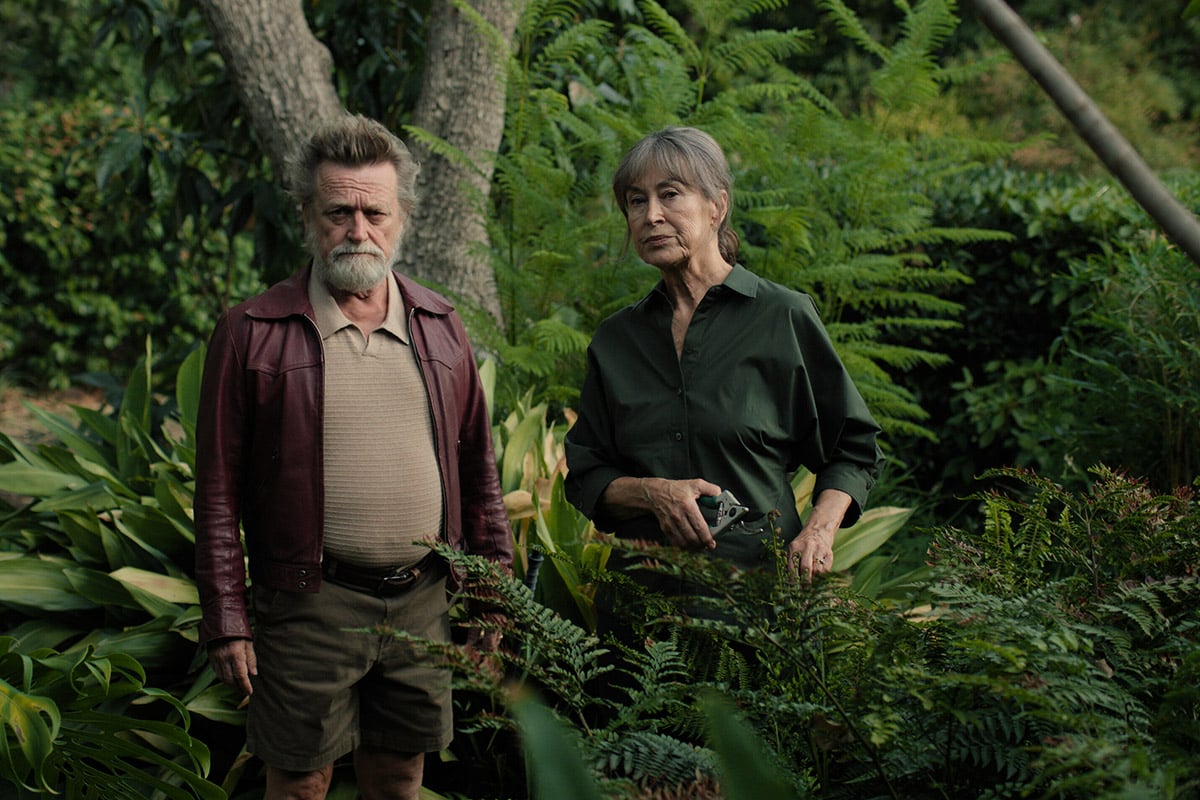
“Birthright’s” Tribeca slot was indeed how a filmmaker hopes their debut feature will first make its way to audiences. “And so great to have a film that can travel beyond Australia. That’s the dream: that you that you make something that’s very specific, very idiosyncratic, but that there’s a universality to the themes and the characters, and that it has the chops to travel. So on that level, absolutely a dream to be able to play beyond Australia and then also bring it back home — and knowing that it resonates with Australian audiences is really great as well.”
As the film furthers its festival run at home, Pepper is finding that while the humour translated to the US — “it’s a very dark sense of humour, and very dry, and I was unsure as to how it would land in the States, so I was really pleasantly surprised that they got it and they got into it” — “there were more housing-related laughs in Sydney that maybe were not as strong over in New York,” she reflects. Also, “I didn’t expect that they would laugh quite so much.”
“The hope is that it provokes discussion and a discourse around this — that I did try to represent both generations’ point of view. And to make them both sympathetic on some level, even though it is satire and it is presenting the worst of everybody in a lot of ways, that you can still understand where each generation is coming from and see how they’ve got to the point that they’re at and why they are so damning towards the other generation,” Pepper advises.
“And everyone does seem — or not everyone, but a lot of people do seem to flip-flop as the film goes on. They pinpoint different moments where they thought who was being the bad guy and who was at fault, which is great — which is absolutely what I was hoping for.”































